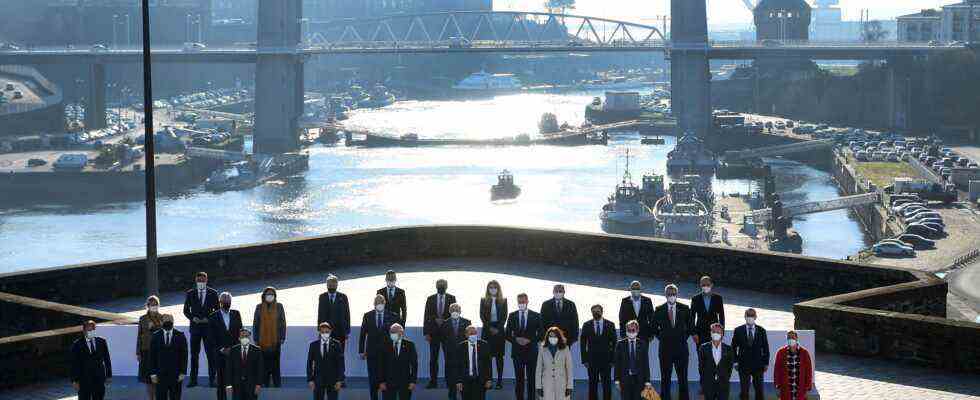analysis
As of: 01/14/2022 6:10 p.m
The question of what intentions Kremlin chief Putin is pursuing dominated the meeting of EU foreign ministers in Brest. It was agreed to stay on two tracks. The news of the hacker attack on Ukraine caused a stir.
The news came as an alarm to some in Brest. First, two days of deliberations on the Ukraine crisis, hours of guesswork about Putin’s intentions, and then on day three of the ministerial deliberations, the news: there was a hacker attack on the Ukrainian government’s website.
The EU immediately called an emergency meeting of its security committee to provide technical assistance to the government in Kiev. EU chief diplomat Borrell was asked whether there was any knowledge of the background. The Spaniard thought aloud. “I don’t want to point at anyone… I have no evidence.” Then he gave a hint: “You can think of something.”
Because the talks with Russia got off to a slow start and some Moscow signaled little interest in further talks, the risk of further escalation was discussed in Brest. A Russian war against Ukraine – some ministers thought it was possible. Others spoke more cautiously about violating Ukraine’s integrity.
The guesswork out of Putin’s intentions
Overall, it was again guesswork about Putin’s intentions that dominated the meeting of EU foreign ministers. And it was always about the question of whether the Russian President is serious about the many negotiations or not. Nevertheless, from a European point of view, they should definitely be continued. “It takes perseverance and patience,” said Federal Foreign Minister Annalena Baerbock. There have been no real talks for more than two years, nobody could have expected that things would go quickly now.
Baerbock wants to travel to Moscow himself in the coming week and talk to Russian Foreign Minister Sergey Lavrov. Before that, she wants to hold talks with the Ukrainian government, which is a joint initiative with French Foreign Minister Jean-Yves Le Drian.
Closed double track
What was striking at the ministerial meeting in Brest was the unity of the Europeans. It was agreed to continue on two tracks. The talks should be continued on as many channels as possible, but at the same time preparations are being made in the background in case the talks fail.
All 27 ministers agreed on a ten-point plan for a unified approach to dealing with Russia – a mixture of deterrence and dialogue, for example on arms control. Harsh economic sanctions are under discussion, some of which are said to be more severe than they have ever been against Russia. For strategic reasons, what they might look like is not being disseminated. Possibly, however, it will also have to be examined how the damage for Moscow can be kept high, but less so for European companies.
Solidarity with Lithuania
While the conflict with Russia is far from easing, the next one with a major power, China, is already developing. The Baltic EU member Lithuania opened a “Taiwan Representation” in Vilnius before Christmas – contrary to international practice, not under the name “Taipei Representation”.
China reacted promptly and sharply – with massive trade restrictions against Lithuanian companies. All EU foreign ministers have now declared their solidarity with Lithuania. However, it was initially unclear whether the solidarity also meant tangible consequences for China when it came to accessing the European internal market.
Conclusion of the meeting of foreign ministers in Brest: guesswork about Putin and an alarm
Helga Schmidt, ARD Brussels, 14.1.2022 5:20 p.m

